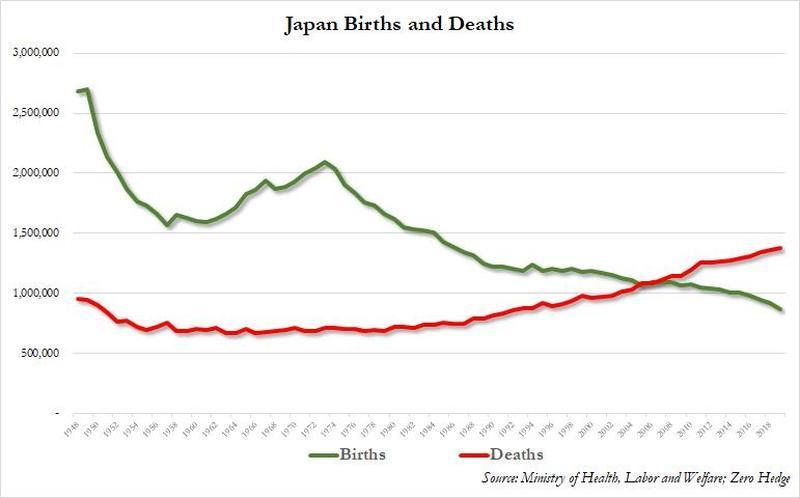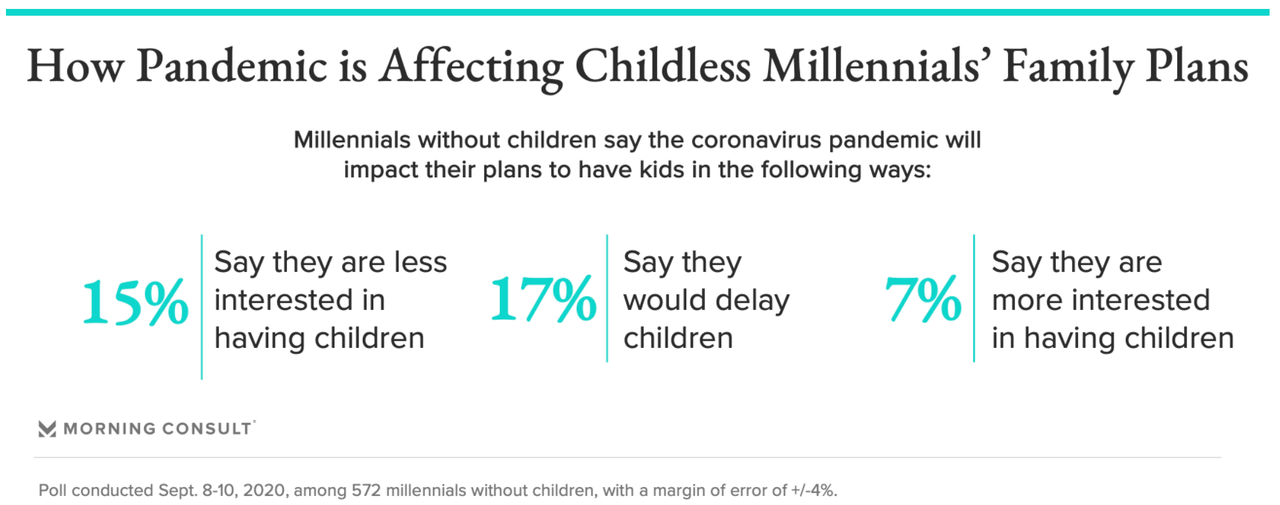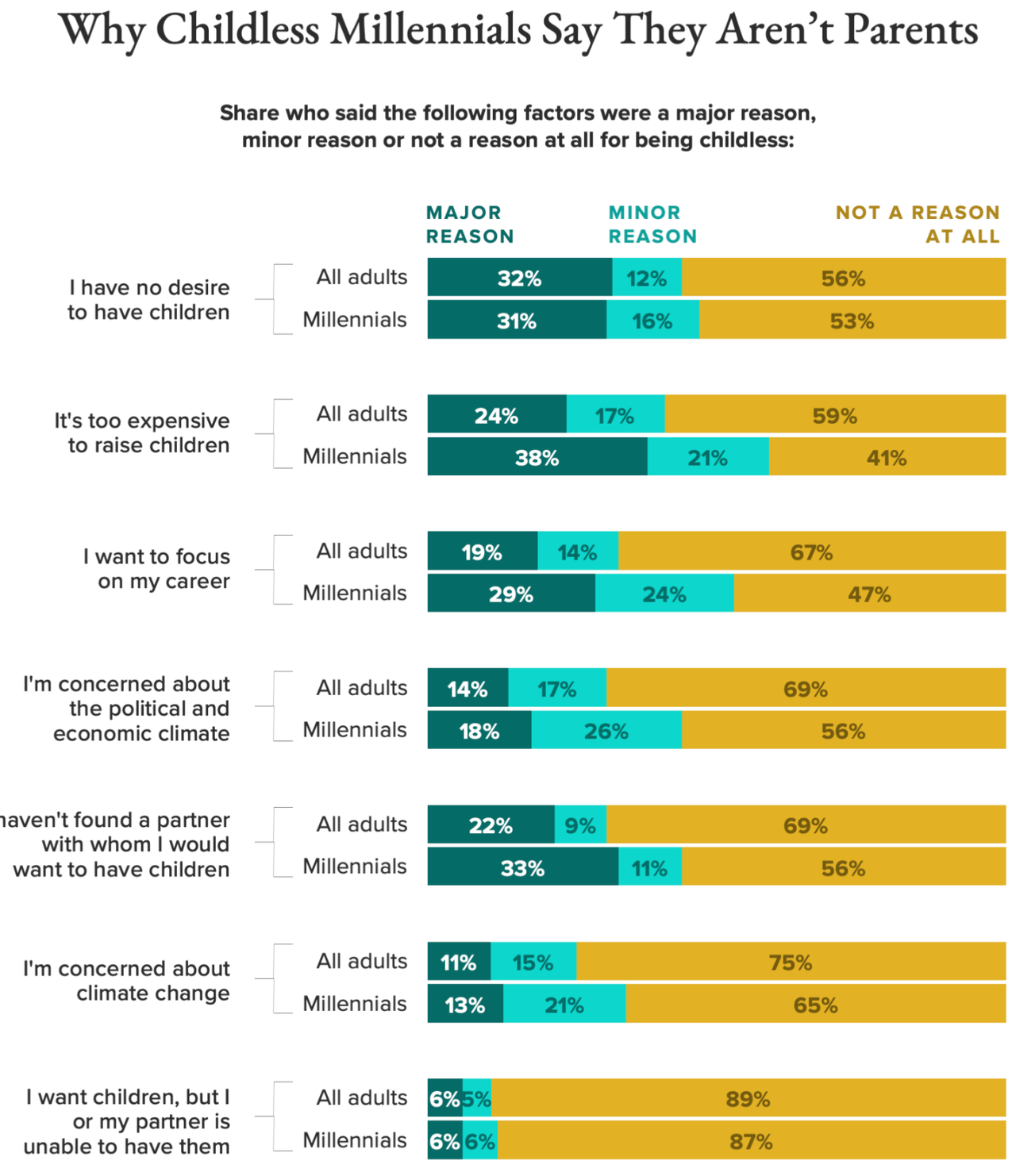'The "baby bust" seen over the last ten years as millennials waited
longer to have children could end up looking less like a "blip" and more
like a permanent, long-lasting trend.'
 By Tyler Durden: The world's most developed countries are seeing population growth slow
to a crawl, with the population of Japan, the EU and the US now expected
to shrink between now and the beginning of the latter half of the 21st
Century. As we noted on Jan. 1, the US recorded the slowest rate of
population growth in a century between 2018 and 2019, thanks to the one-two punch of lower birth rates and declining immigration. But the US is in comparatively good shape relative to Japan, which is already seeing deaths outstrip births.
By Tyler Durden: The world's most developed countries are seeing population growth slow
to a crawl, with the population of Japan, the EU and the US now expected
to shrink between now and the beginning of the latter half of the 21st
Century. As we noted on Jan. 1, the US recorded the slowest rate of
population growth in a century between 2018 and 2019, thanks to the one-two punch of lower birth rates and declining immigration. But the US is in comparatively good shape relative to Japan, which is already seeing deaths outstrip births.
With more younger people delaying family formation to focus on their careers, millennials are having children later than any prior generation. And as economists try to parse the long-term impact on the coronavirus pandemic on long-term demographic trends, it looks like - if anything - the outbreak has further soured many millennials on the notion of child-rearing.
A new study from Morning Consult found that 15% of millennials are less interested in having children because of the pandemic, while 17% said they would delay having children because of it. Another 7% said they're now more interested in having children (perhaps after bonding with a relatively new partner during the lockdowns).
To be sure, MC surveyed 4,400 adults from Sept. 8-10, with a margin of error of 1 percentage point; the number of childless adults surveyed totaled 2,201 people with a 2 percentage point margin of error, and the margin of error for the childless millennials subsample is 4 points.
“That’s a very dramatic change in behavior,” said Dr. Phillip Levine, a professor of economics at Wellesley College and former senior economist at the White House Council of Economic Advisers who studies the economics of fertility. "All these things are foreshadowing what we might expect to see happen in a few months, when we see the first of the children conceived during the pandemic start being born."
When asked why they don't want kids, millennials cite myriad reasons all of which relate back to not feeling financially secure enough (though a few cited climate change).
Put another way: the "baby bust" seen over the last ten years as millennials waited longer to have children could end up looking less like a "blip" and more like a permanent, long-lasting trend. Especially as more child care responsibilities shift away from schools and toward parents, making having a child in the near term even less attractive for young people with few financial resources to draw on.



No comments:
Post a Comment